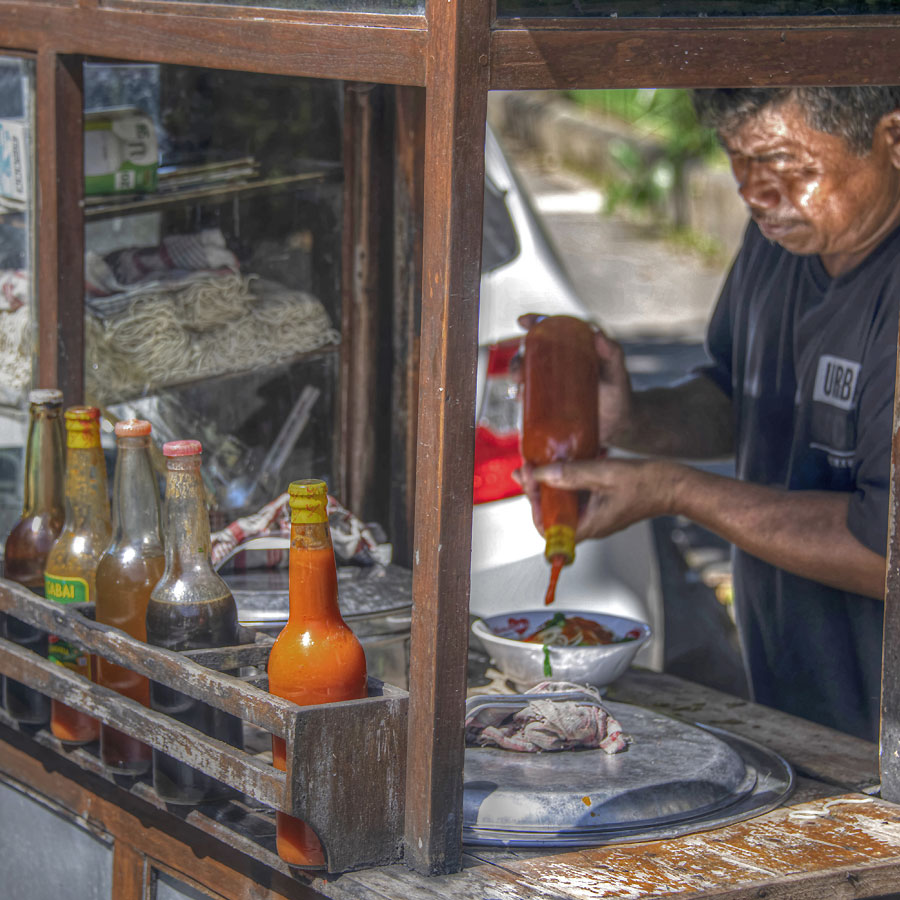The Bakso Man
The ‘ting, ting, ting’ as Pak (Mr) Sunyoto lightly taps his spoon against the side of an empty bowl permeates the streets and alleys letting everyone know the bakso cart has arrived. Gates open and people appear, notes tightly scrunched in their hands, to order either take away in a plastic bag or just sit by the roadside and chat while eating from a bowl.
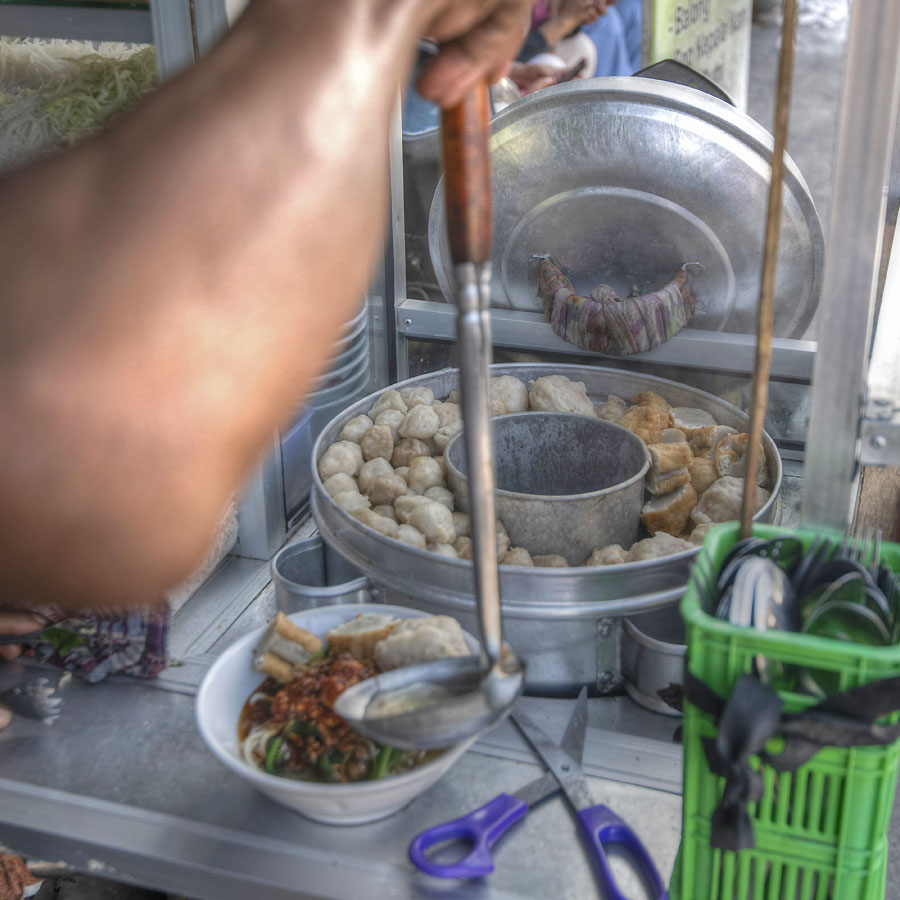
Bakso are balls of meat, usually chicken, beef and occasionally fish, mixed with flour , and served floating in a steaming soup with noodles. They are an Indonesian staple and food carts like Pak Sunyoto’s are almost iconic, found in every city, town and village throughout the country. I have no doubt they feature in the best memories of every Indonesian and every foreigner will have seen them plying their trade by the road.
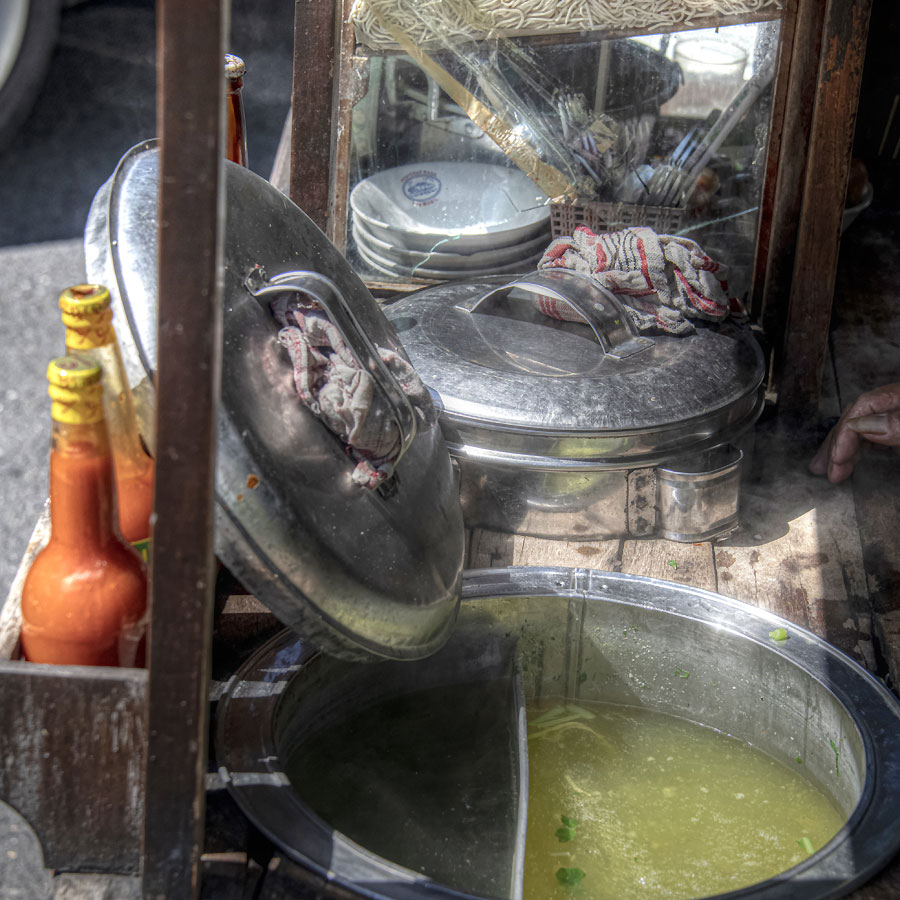
While bakso is one of the most commonly available foods there are many other carts selling all manner of foods, often depending on the popularity of a specific food in a particular location. For example bubur ayam (chicken porridge/congee) is a very Javanese breakfast thing; bubur ayam carts can be found everywhere in Java before lunch time and in many places in Bali where there is a strong Javanese community, but you may not see them at all elsewhere.
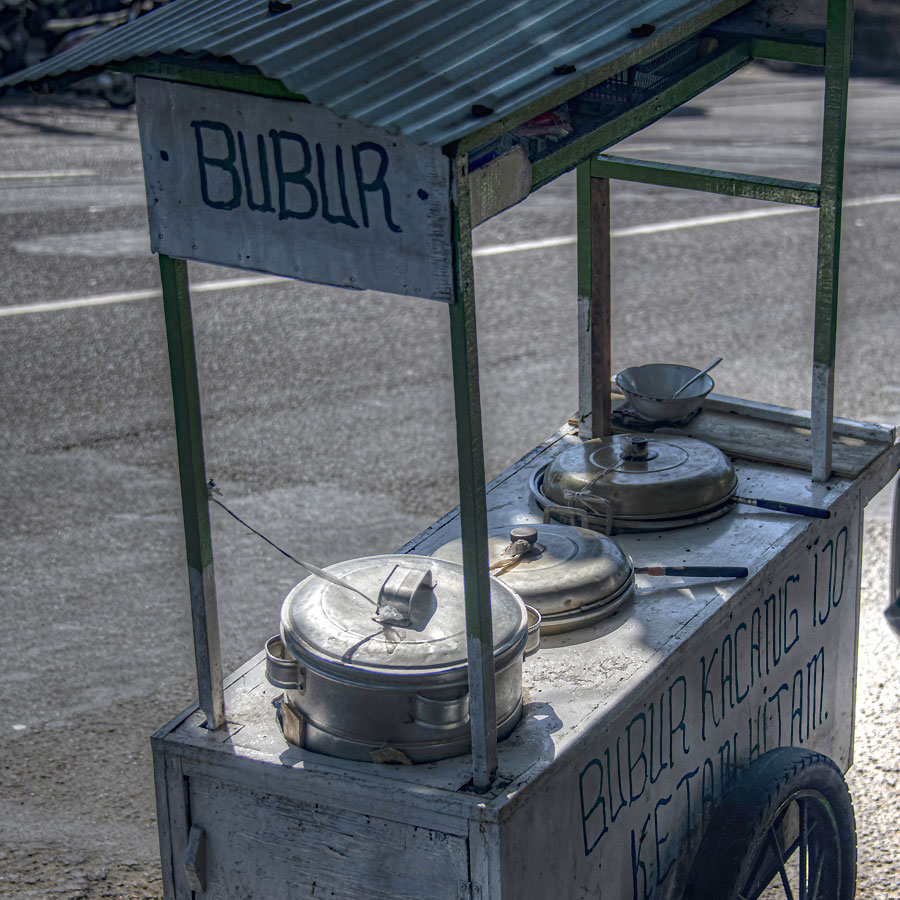
Carts selling bubur kacang hijau (green bean porridge) don’t need much more than somewhere to keep the porridge warm and include a small stove hidden away.
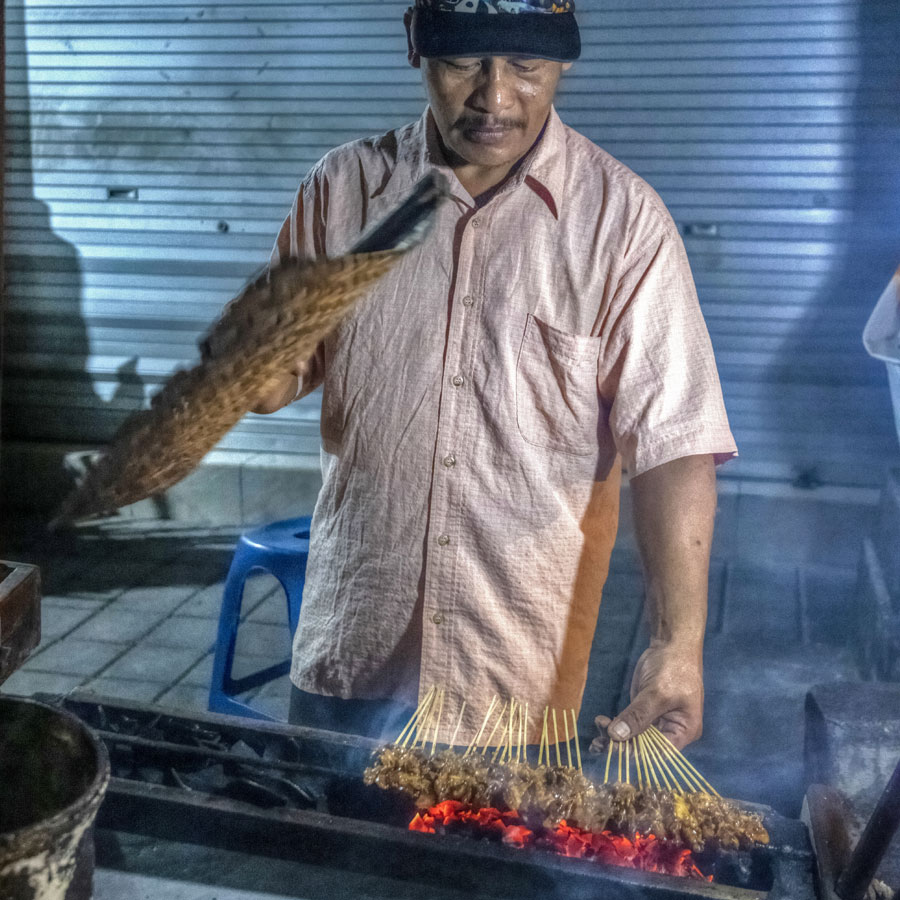
Sate ayam (chicken skewers) cooked over coals are an evening treat all over Indonesia.
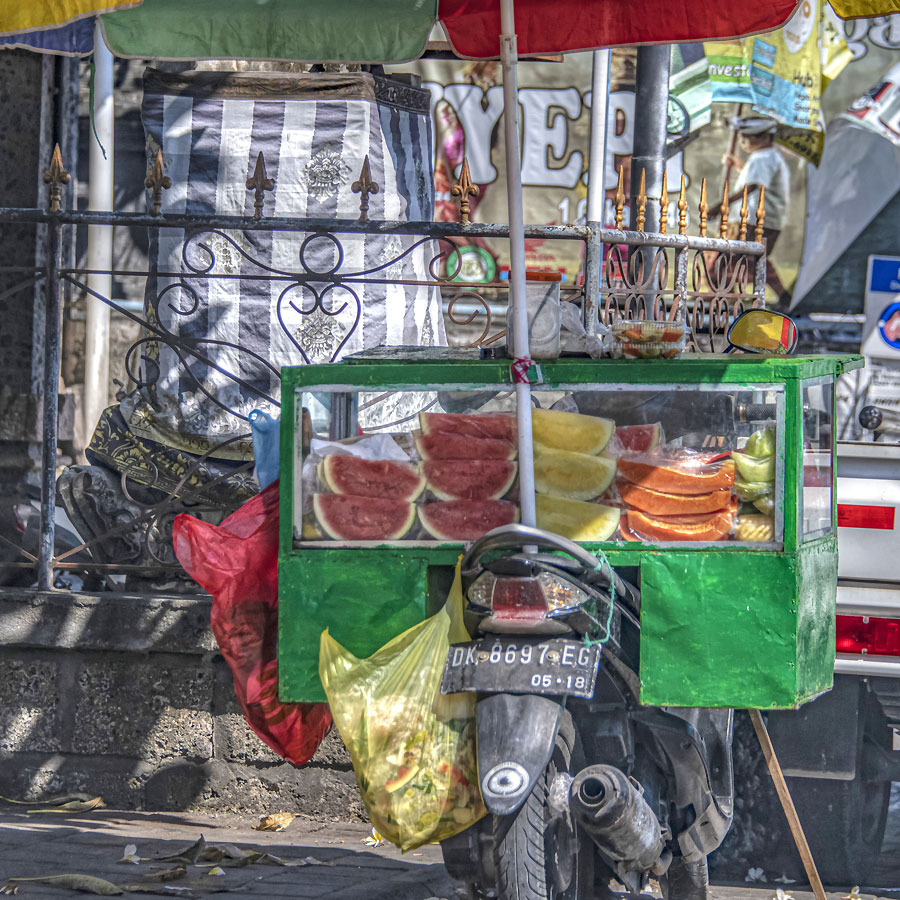
This colourful fruit seller uses a motorised cart, which are becoming more popular.
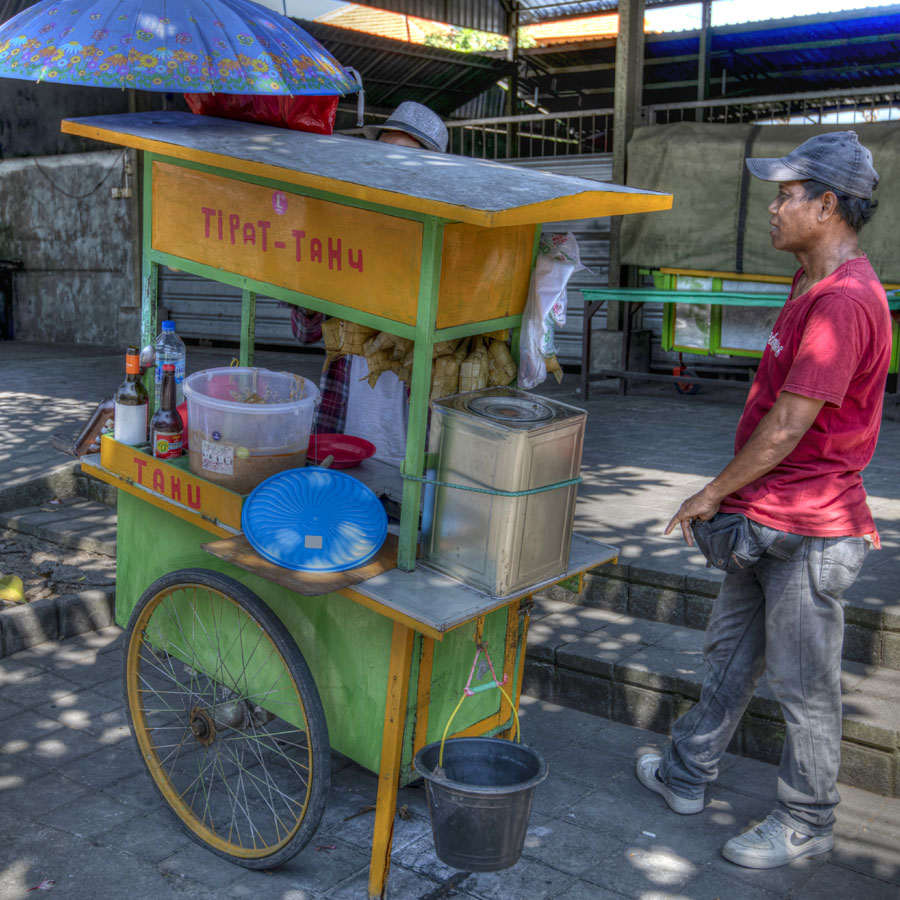
.
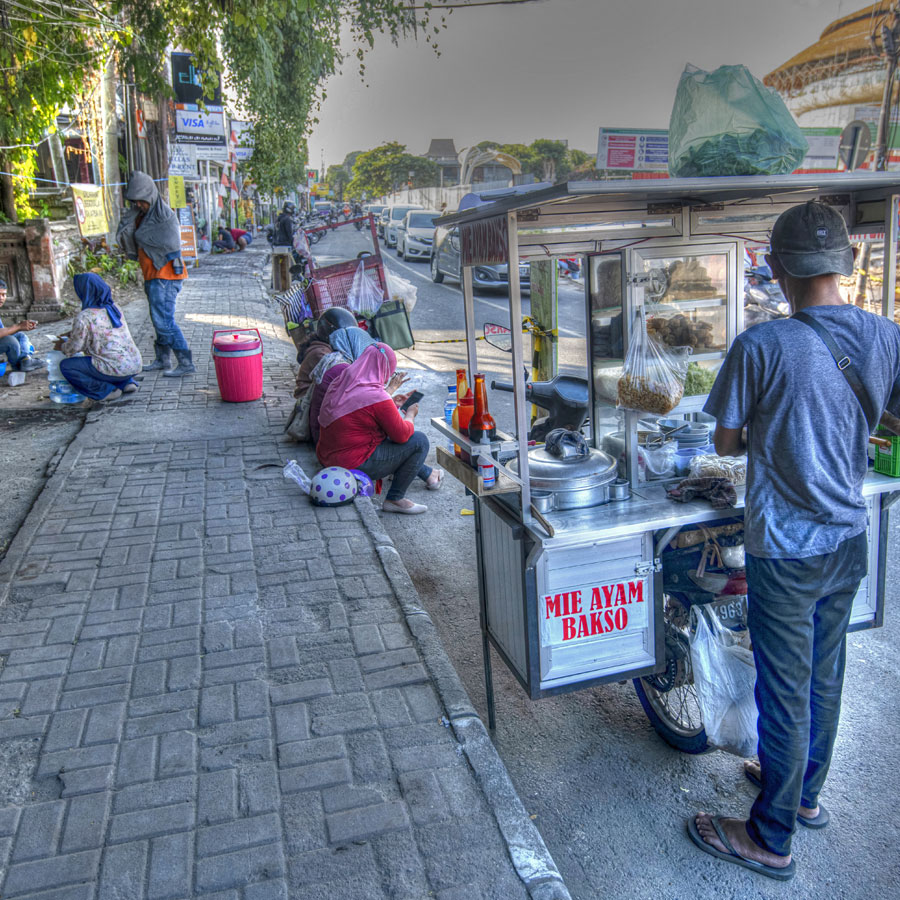
This modern motorised cart constructed of aluminium may be practical but personally I miss the character of timber.
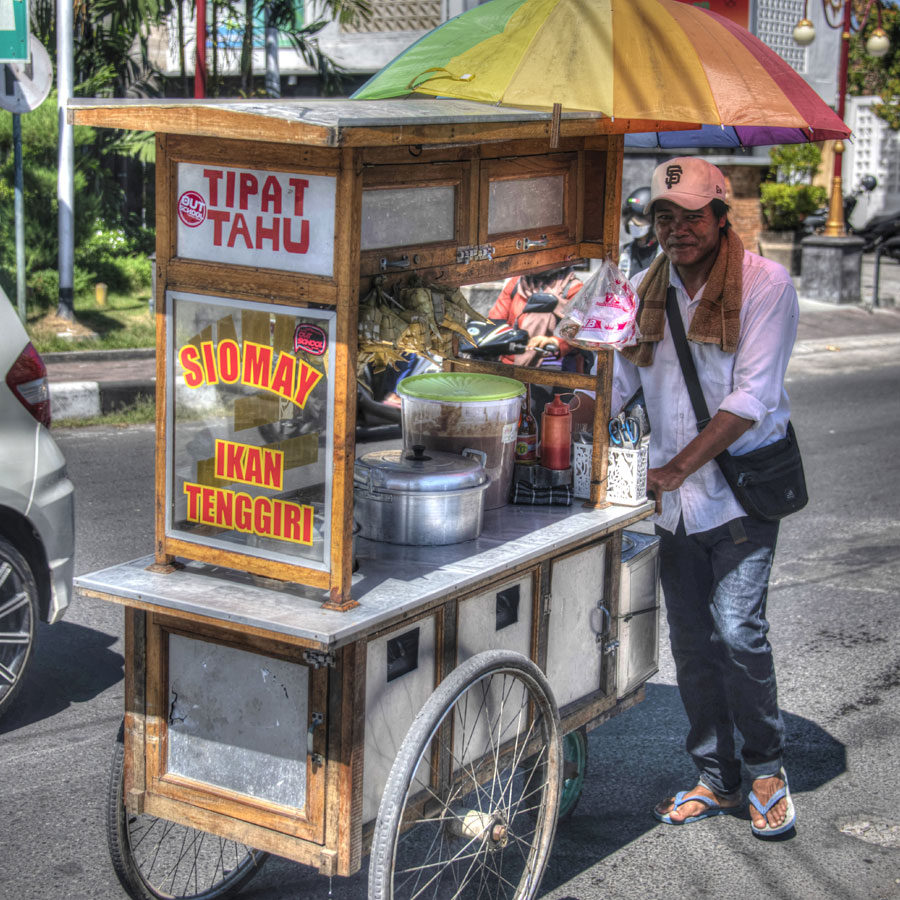
A very traditional cart selling siomay with fish filling.
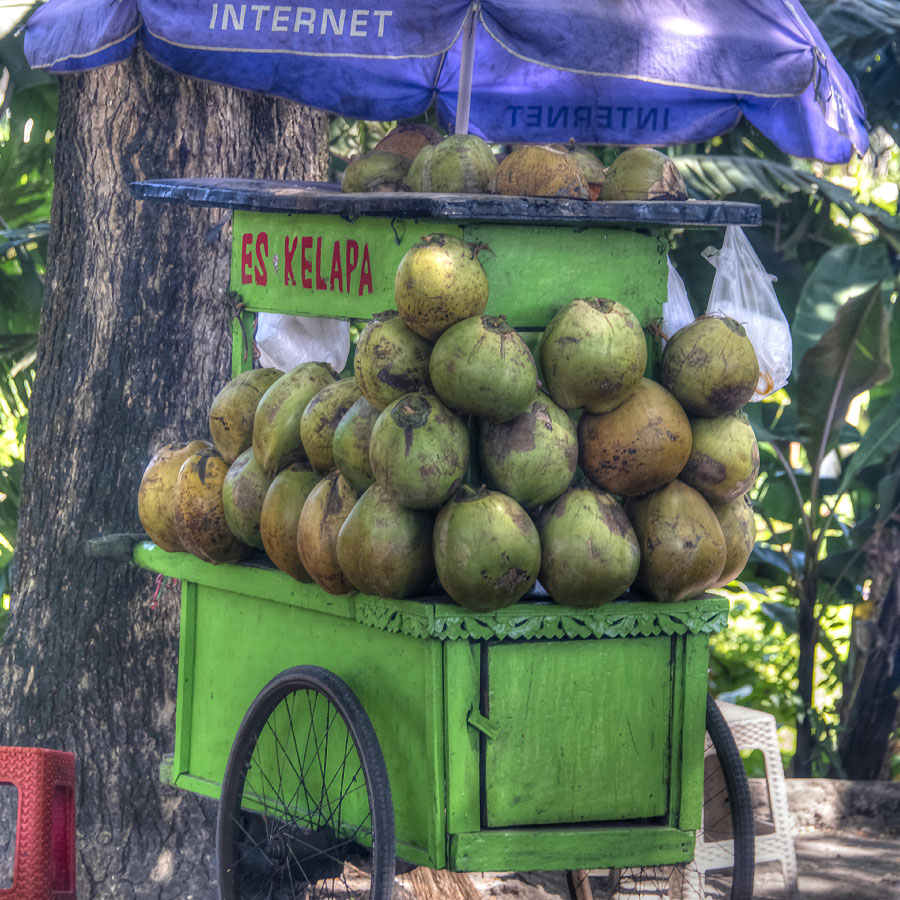
Yet another choice, this time iced coconut drink. It’s like a carnival by the roadside every day!
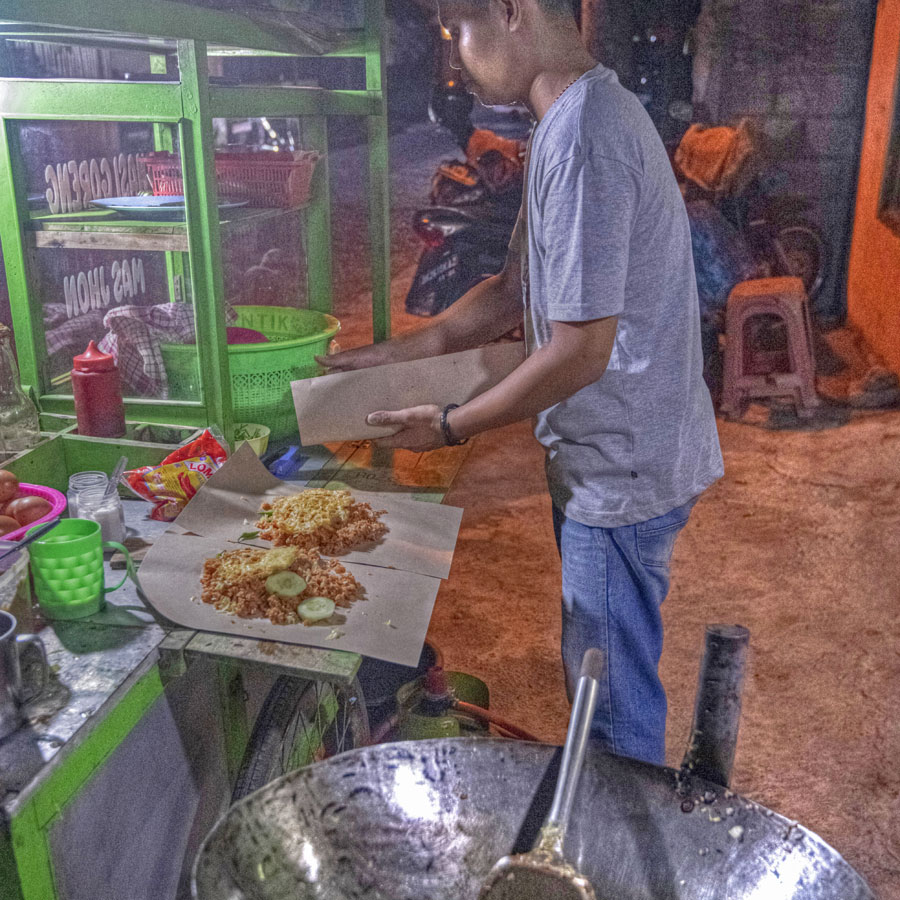
Another evening dish that is everyone’s favourite, nasi goreng (fried rice). Why pay $8 in a restaurant when you can have the real thing for a dollar or two?
After sitting with Pak Sunyoto to eat a delicious bakso lunch (for Rp10,000 or AU$1.00!) I asked him about his life and he invited me to see for myself the next morning.
By the time I arrived at Pak Sunyoto’s modest rooms his wife Sriyani had already been up for several hours, since 3am in fact, frying things to sell to any small shop within cycling distance. She soon left to deliver them, returning half an hour later seeming pleased with herself for having sold out. Pak Sunyoto explained that she wakes early to tend to her own business before helping him prepare for his, leaving her to rest at home after he departs at around 10am.
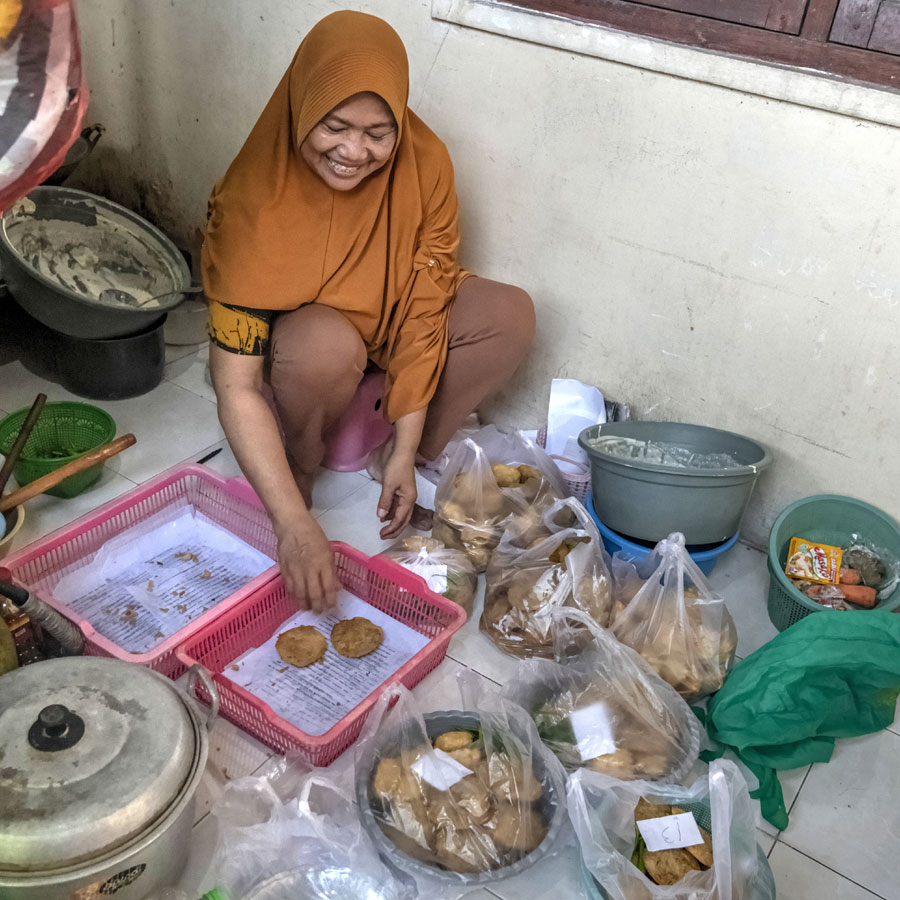
Like many urban people in Indonesia Pak Sunyoto and Sriyani live in a ‘kos’, a little like an apartment consisting of one or more very basic rooms that may have either a private or shared bathroom and often an outside kitchen. This particular kos, located in central Denpasar, has 2 bedrooms and an inside kitchen that is rarely used as they prefer to cook outside, and costs them Rp600,000 (AU$60.00 or about US$40.00) per month to rent. Pak Sunyoto tells me he and Sriyani first came to Denpasar in 1989 at age 20, from Solo in central Java.
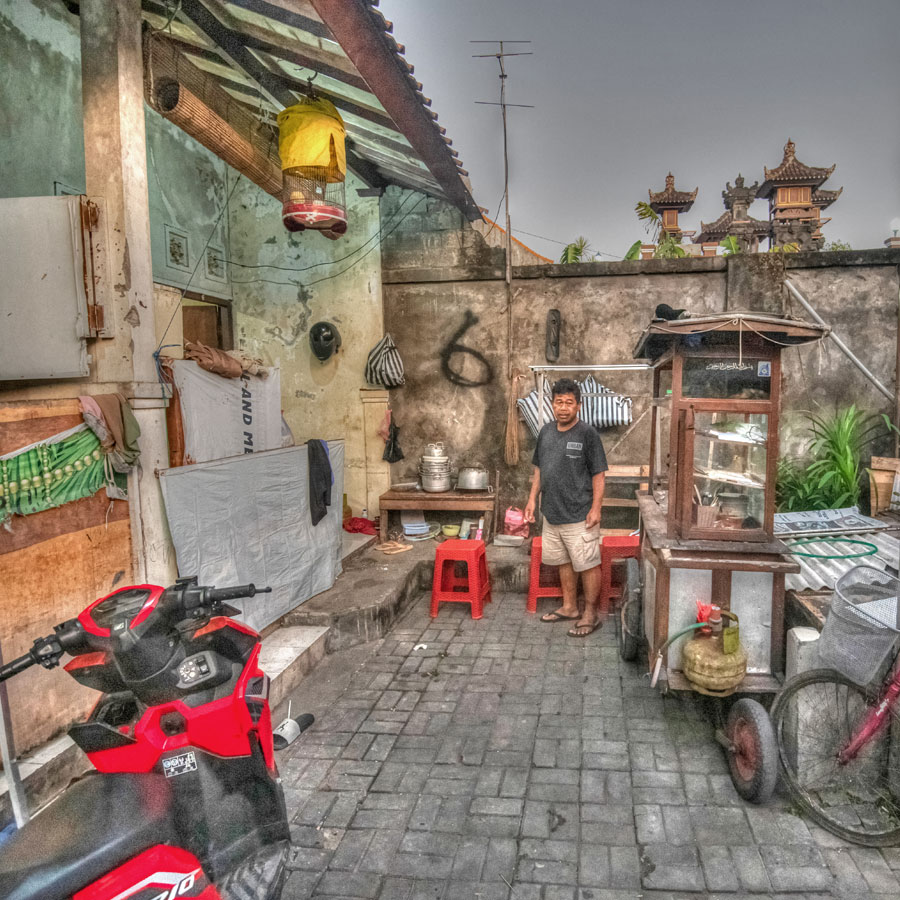
Sriyani plopped herself onto a tub and began crushing garlic cloves in a pestle while deftly adding dashes of spice from various jars she had secreted around the kitchen. She tossed the resulting paste into a wok and moved into the corner to fry it while Pak Sunyoto boiled chicken and then stripped the meat from the bones to be used in Mie Ayam (chicken noodles), his most popular product. Chicken is bought at the market at Rp44,000 per kilo at the moment and most days he uses about 3kg.
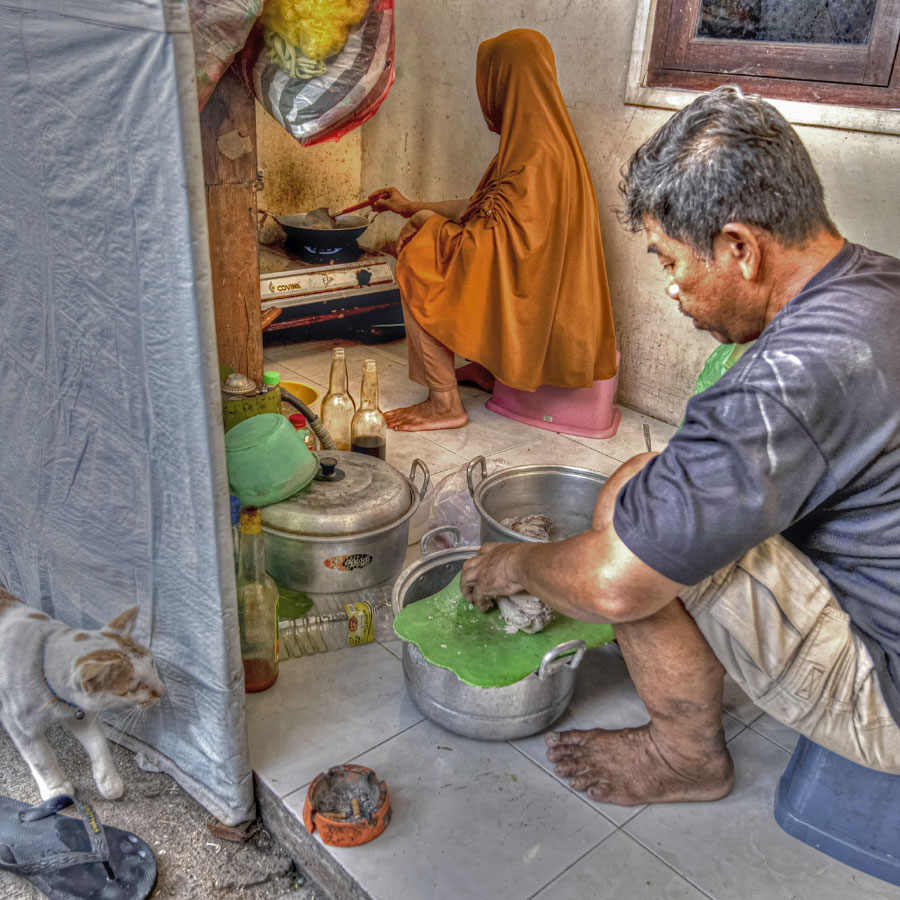
After preparing the meat Pak Sunyoto disappears for 10 minutes to buy mie (noodles), which are the staple of the dishes he serves. He occasionally makes them himself however just as Sriyani fries foods for other sellers he frequently buys mie from other sellers; he uses about 3kg each day and at Rp13,000 (AU$1.30) per kilo to buy it often isn’t worth making it himself. One kilo of mie makes around 13 portions and it lasts a few days so any leftover can be used the following day. He removes both water tubs from the cart and washes them before adding fresh water.
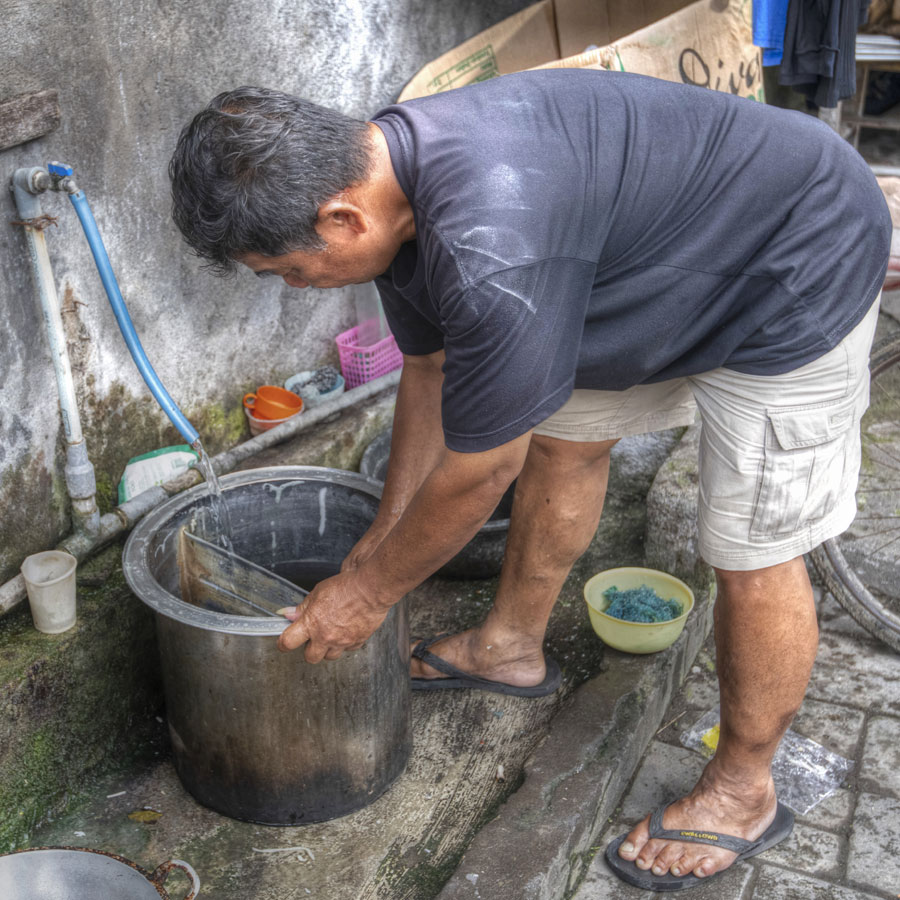
Other consumables include vegetables which come from the local market at Rp10,000 per bunch, 2 bunches a day; fried tofu cooked by Sriyani, and one 3kg bottle of gas every day which costs Rp23,000.
All up Pak Sunyoto estimates he sells between 50 and 60 portions a day, at between Rp10,000 and Rp15,000 per portion depending on what extra’s people want. This equates to a gross income of around Rp700,000 a day which Pak Sunyoto believes is about half profit.
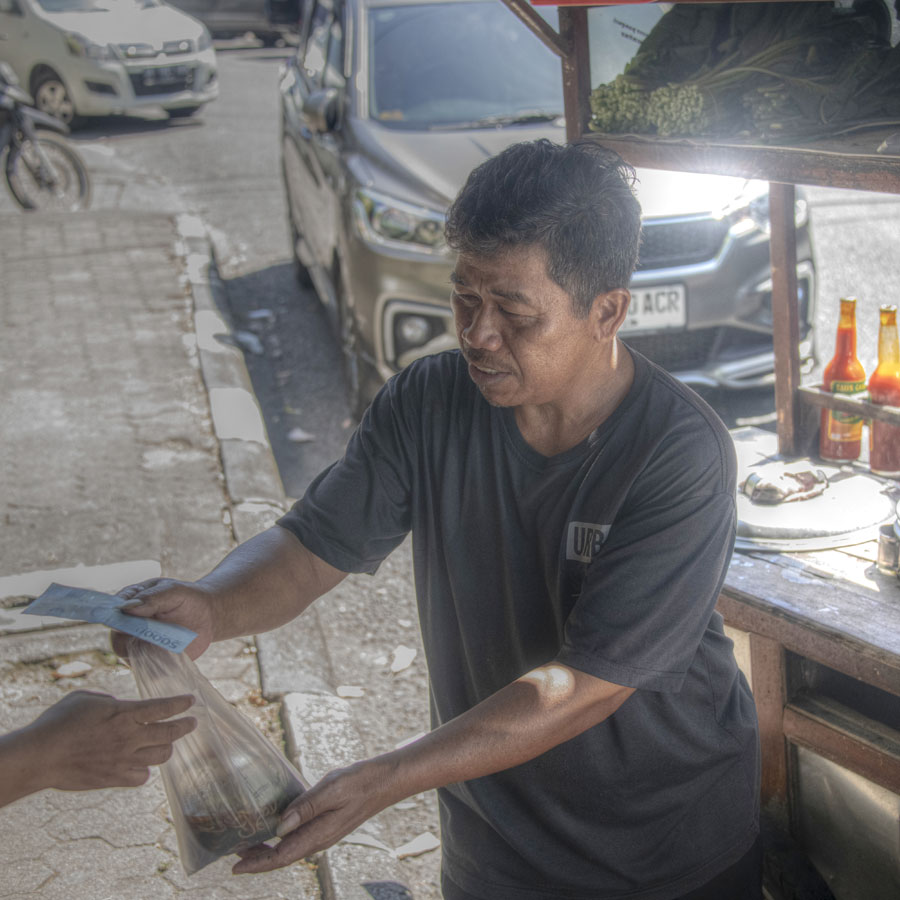
Pak Sunyoto constructed the cart himself about 10 years ago from materials he bought in Java, he believes that to make or buy it today would likely cost around Rp3,000,000 to Rp4,000,000. It appears perfectly suited to his business with 2 stoves to keep the two big tubs of water hot, one for soup and the other for mie, and 2 wash tubs hidden away to clean bowls and dishes.
